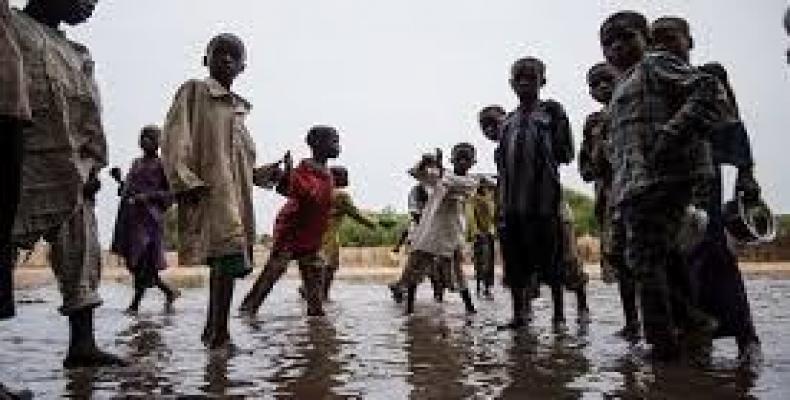Abuya, March 25 (RHC)-- In Nigeria, over 3.6 million people are without access to potable water, proper sanitation, and hygiene services, according to a statement made by a representative of the United Nations International Children's Fund, UNICEF.
The statement, made by UNICEF's Mohamed Fall, was delivered under the backdrop of yesterday's World Water Day and the theme of "Leaving no one behind." About 1.1 million of those affected are living in Internally Displaced Persons (IDP) camps due to violence and conflict in their communities, especially those from remote areas. "About 800,000 people are in hard-to-reach areas and 79 percent of these are children and women," Fall said.
In the northeastern region of the country, the consistent conflict has caused a spike in diseases, such as cholera, due to the ongoing violence. Cholera cases more than doubled from 2017 to 2018, going from 5,365 affected to 12,643.
Henrietta Fore, UNICEF's executive director, said that health-related issues from lack of access to water are three times more likely to kill children under the age of 15 than direct violence across the 16 conflict-plagued countries.
Children under five are 20 times more likely to die from diarrheal-related deaths, according to UNICEF's Water Under Fire report. “The reality is that there are more children who die from lack of access to safe water than by bullets," Fore stated.
Water scarcity also puts young women at risk of sexual violence, due to their necessity to venture to collect water or use latrines. Young women are also missing school because the buildings are not suitable for managing menstrual hygiene.
UNICEF is making an effort to increase and improve conflict-response mechanisms, like the IDP camps, in order to provide citizens with access to water and prevent any diseases linked to lack of access to such facilities, such as diarrhea, typhoid, cholera and polio.


